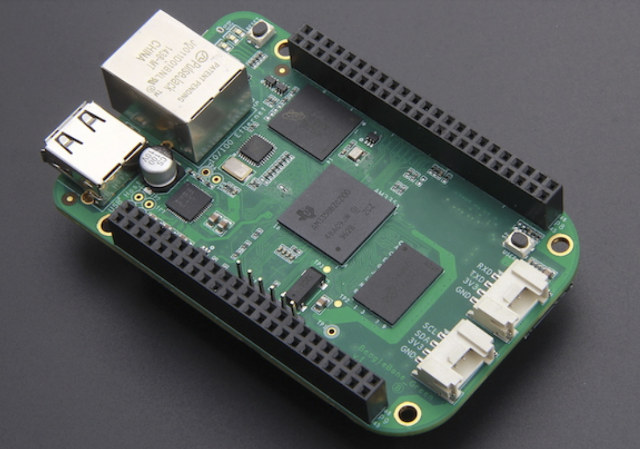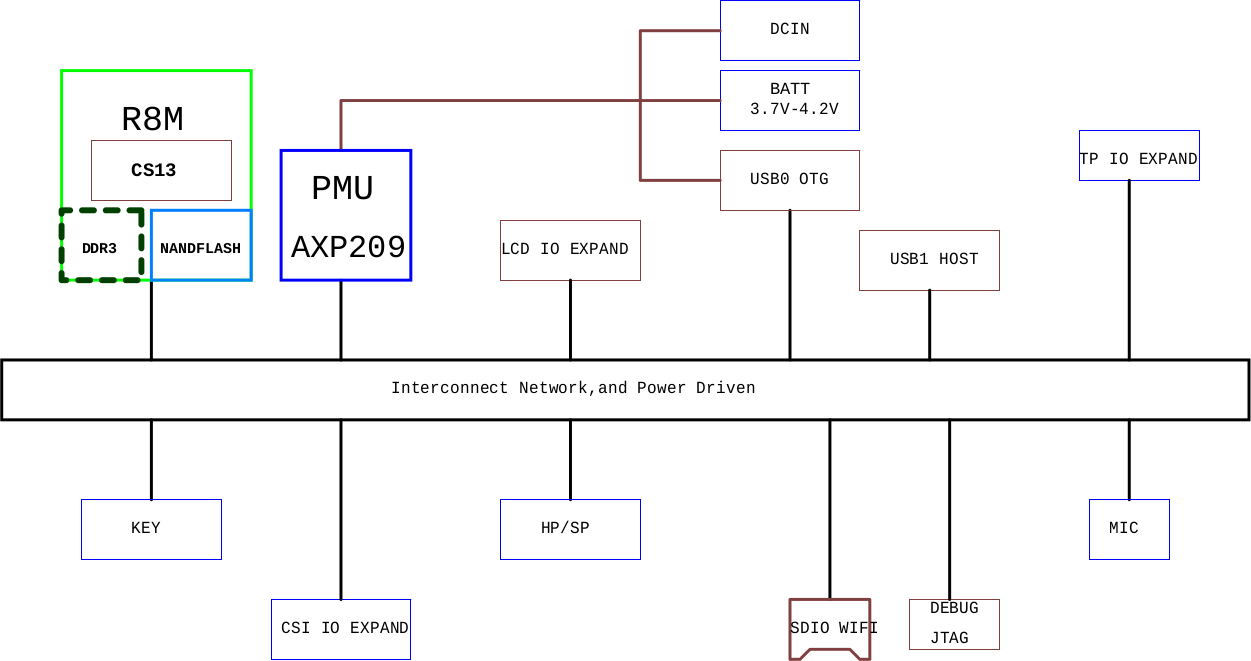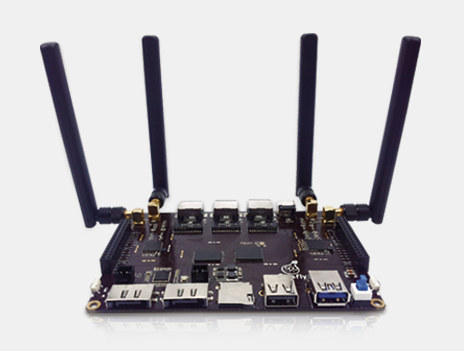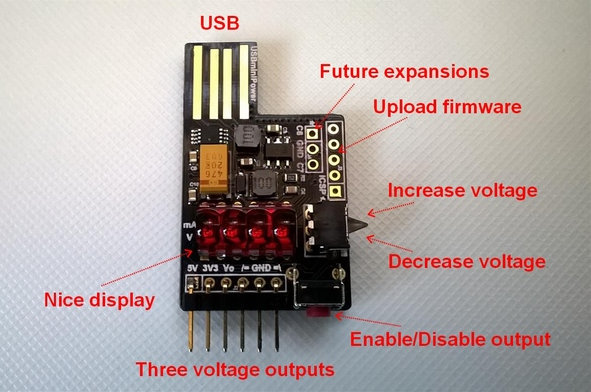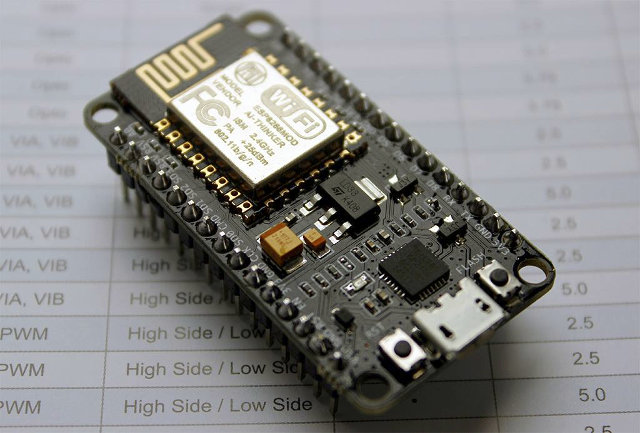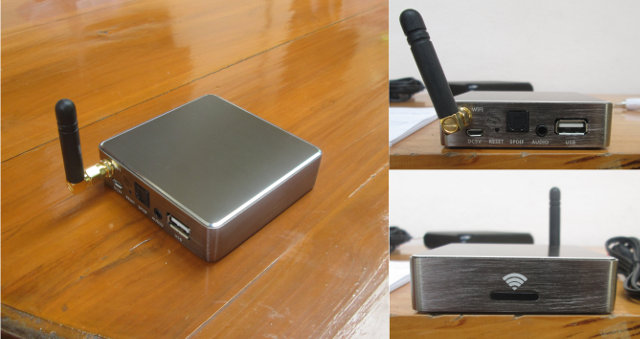The original BeagleBone launched in 2011 $89, then Beagleboard.org released an updated version with HDMI, a faster processor, and more RAM called BeagleBone Black for $45 in 2013, possibly as a competitor to the Raspberry Pi, and since then the price has bumped up to $55 because of a larger eMMC flash. There’s now a new version – and a different color – with BeagleBone Green selling for $39 on SeeedStudio with shipping starting on August 20, 2015. BeagleBone Green board specifications: SoC – Texas Instruments Sitara AM3358BZCZ100 Cortex A8 @ 1 GHz with NEON + PowerVR SGX530 GPU System Memory – 512 MB DDR3L @ 800 MHz Storage – 4GB eMMC + micro SD slot USB Access to USB0, Client mode via Micro USB Access to USB1, Type A Socket, 500mA LS/FS/HS Serial Port – UART0 via 6-pin 3.3V TTL header (populated) Ethernet – 10/100M Ethernet , RJ45 Expansion […]
2015 Open Source Hardware Summit Program Published
The Open Source Hardware Summit takes places once a year in different location each year. It was at the Massachusetts Institute of Technology (MIT) in 2013, in Rome, Italy last year, and this year the event will be hosted in Philadelphia in the US, and the organizers just released the program. It will be a one day event (September 19, 2015) with four “tracks” with a total of 23 sessions, and a keynote: Science and Education Open Hardware, Open Minds: The Rise of Open Hardware in Academia and K-12 Education by Ben Leduc-Mills. The Rise and Fall of an Open Source Hardware Company by Nancy Ouyang. Open Hardware in Community/Citizen Science by Peter Marchetto. DropBot: an Open-Source Platform for Lab Automation by Ryan Fobel, Christian Fobel, Michael Dryden and Aaron Wheeler. Making Open Hardware the New Standard in Science by Joshua Pearce. Open Source Robotics Foundation and the Robotics Fast […]
Next Thing Has Released Software and Hardware Files for the $9 CHIP Computer
Next Thing CHIP computer powered by Allwinner R8 module, also referred as “the $9 computer“, had a very successful crowdfunding campaign having raised over $2,000,000 from nearly 40,000 backers. When launching an electronics products on a crowdfunding campaign, many companies claim their device will be open source, only to disappoint once the perks actually ship, and Next Thing made the same promise, except they appear to have delivered as shown in their latest update “Holy C.H.I.P! It’s C.H.I.P!!!” showing the first production samples, and providing links to hardware design files for the Alpha version, as well as buildroot, U-boot and Linux source code. All resources can be found on docs.nexthing.co, but let’s check what they’ve released so far. Hardware design files on Github include: A Bill of Materials (BoM) Schematics in PDF and DSN formats PCB Layout in BRD and PNG format Pinouts for U12 and U14 connectors Mechanical files […]
Open Source Linux Drivers for PowerVR GPUs Might Be in the Works
When I write about a new processor with a PowerVR GPU, I can be sure there will be one or two comments saying something like “It has a PowerVR GPU, it’s a non-starter”, mostly because of the status of graphics drivers in Linux. Luc Verhaegen (libv) also made a presentation at FOSDEM 2013 listing various open source projects for GPUs found in ARM processors and PowerVR was the only one without any community project. Bear in mind that apart from Nvidia, and to some extend Broadcom for the VideoCore IV GPU found in BCM2835 / BCM2836 processors used in Raspberry Pi boards, no other companies have released user space drivers for their GPUs, and all work is done by volunteers for other open source GPU drivers, and I’m not sure any of them work 100% yet. Imagination has already provided working GPU drivers for their MIPS Creator-CI20 board, these are […]
FireWRT is an OpenWRT 802.11ac Board Powered by Mediatek MT7621A Processor
There are plenty of low cost 802.11n routers or boards supporting OpenWRT, even starting at $10 or less such as A5-V11 mini router, but if you’re looking for something a bit more powerful with 802.11ac connectivity, options are much more limited, especially if you need something at a lower cost. One option is Xiaomi MiWiFi router based on Mediatek MT7620A with 64MB RAM, and T-Firefly team is now working on FireWRT board based on the more powerful MT7621A processor coupled with 512 MB RAM, and 16 MB SPI flash. FireWRT specifications: Wi-Fi SoC – Mediatek MT7621A dual core MIPS 1004Kc processor @ 880MHz System Memory – 512 MB DDR3 (Beta version: 256 MB) Storage – 16 MB SPI flash memory, 2x SATA 3.0 ports, micro SD card slot Wi-Fi 802.11 b/g/n @ 2.4GHz up to 300Mbps 802.11 a/n/ac @ 5 GHz, up to 867Mbps (AC1200 class router) External High-Gain Antennas […]
USBminiPower USB Power Supply Delivers 3 Outputs: 5V, 3.3V, and a Variable Output up to 14.3V (Crowdfunding)
Yesterday, I found out about a cheap 5V/3.3V USB power supply board, YwRobot MB-102, selling for $1 shipped on Ebay, but one person lamented the lack of 1.8V output, which may be required for example for modules like AsiaRF AWM002 that takes both 3.3V and 1.8V. One way is make your own power board, and get an expensive lab power supply, but I got a solution in my inbox this morning, with USBminiPower, as tiny USB power supply board with three output: 5V, 3.3V and a variable pin between 1V and 14.3V, as well as a 4 digit LED display showing the voltage and intensity just like Charger Doctor. USBminiPower specifications: MCU – Microchip PIC16 MCU (several are supported) Voltage outputs – 5V (from USB port), controllable 3.3V, and controllable & adjustable 1V … 14.3V Display – 4 Digit red LED to display intensity and voltage Max Power – 2.45 […]
NodeMCU is both a Breadboard-Friendly ESP8266 Wi-Fi Board and a LUA based Firmware
NodeMCU is a LUA based interactive firmware for Expressif ESP8622 Wi-Fi SoC, as well as an open source hardware board that contrary to the $3 ESP8266 Wi-Fi modules includes a CP2102 TTL to USB chip for programming and debugging, is breadboard-friendly, and can simply be powered via its micro USB port. Let’s checkout the hardware first. The latest version of the board (V1.0) has the following specifications and features: Wi-Fi Module – ESP-12E module similar to ESP-12 module but with 6 extra GPIOs. USB – micro USB port for power, programming and debugging Headers – 2x 2.54mm 15-pin header with access to GPIOs, SPI, UART, ADC, and power pins Misc – Reset and Flash buttons Power – 5V via micro USB port Dimensions – 49 x 24.5 x 13mm The hardware documentation for the board can be found on nodemcu-devkit repo, including schematics and PCB layout designed with Altium Designer, […]
RaidSonic Releases Firmware and Source Code for Atheros AR9331 Wi-Fi Audio Streamers
RaidSonic is a German company releasing products such as media players and multimedia accessories under their ICY BOX brand. One of those products is ICY Box IB-MP401Air music streaming received based on Atheros AR9331, and that looks very similar to SoundMate M2 I reviewed last year. But if you look on their product page, you’ll find out a few download links: ICY BOX IB-MP401Air (multilang) – The Quick Start Guide and User’s manual in English and German IB-MP401Air (Source code) – a 648 MB rar file with source code for U-boot and OpenWRT IB-MP401Air (Firmware) – The firmware IB-MP401Air (Open Source Software) – Just the open source licenses So I’ve downloaded the source code file (IB-MP401Air_Sources_and%20License_Terms.rar) to have a look. It has two compressed files, one with the license, and IB-MP401Air_Sources.tar.gz with the source code.
|
1 2 3 4 5 6 7 |
tar xzvf IB-MP401Air_Sources.tar.gz cd dns320B_GPL20150212/ ls -l total 12 -rwxr--r-- 1 jaufranc jaufranc 1400 Apr 16 16:49 building-the-firmware.txt drwxr-xr-x 14 jaufranc jaufranc 4096 Feb 12 10:54 dns320B_GPL20150212 -rwxr--r-- 1 jaufranc jaufranc 925 Feb 12 08:25 making-u-boot.txt |
The file showing how to build the firmware (OpenWRT) explains you should not use […]


